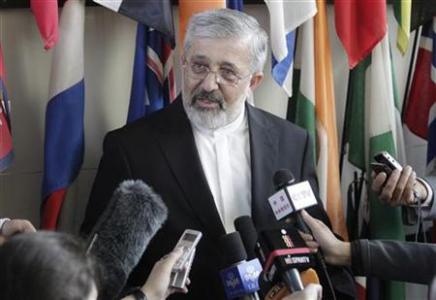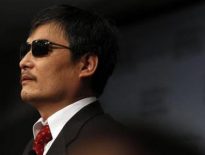(Reuters) – Lack of progress in talks between Iran and the International Atomic Energy Agency is disappointing and it shows Tehran’s continued failure to abide by its commitment to the U.N. nuclear watchdog, a U.S. envoy said on Saturday.

The IAEA and Iran failed at talks on Friday to unblock an investigation into suspected atom bomb research by the Islamic state, a setback dimming any chances for success in higher-level negotiations between Tehran and major powers later this month.
The IAEA, a Vienna-based U.N. agency, said no progress had been made in the meeting aimed at sealing a framework deal on resuming its long-stalled investigation.
Six world powers were scrutinizing the IAEA-Iran meeting to judge whether the Iranians were ready to make concessions before a resumption of wider-ranging negotiations with them in Moscow on June 18-19 on the decade-old nuclear dispute.
“We’re disappointed,” Robert Wood, the acting U.S. envoy to the IAEA, told Reuters in an emailed comment.
“Yesterday’s outcome highlights Iran’s continued failure to abide by its commitment to the IAEA, and further underscores the need for it to work with the IAEA to address international community’s real concerns,” he said.
The IAEA had been pressing Tehran for an accord that would give its inspectors immediate access to the Parchin military complex, where it believes explosives tests relevant for the development of nuclear arms have taken place, and suspects Iran may now be cleaning the site of any incriminating evidence.
PROGRESS POSSIBLE?
The United States, European powers and Israel want to curb Iranian atomic activities they fear are intended to produce nuclear bombs. The Islamic Republic says its nuclear program is meant purely to produce energy for civilian uses.
Both the IAEA and Iran – which insists it will work with the U.N. agency to prove allegations of a nuclear weapons agenda are “forged and fabricated” – said before Friday’s meeting that significant headway had been made on the procedural document.
But differences persisted over how the IAEA should conduct its inquiry, in which U.N. inspectors want access to sites, documents and officials.
“The IAEA and Iran have on some points significantly diverging ideas of how a new agreement would look,” said Mark Hibbs of the Carnegie Endowment for International Peace.
But Hibbs said “negative” signals from Vienna did not necessarily have to mean anything in the talks in Moscow between Iran and the six powers – the United States, Russia, France, Germany, Britain and China.
The talks pursued by world powers are aimed at defusing tension over Iran’s nuclear works that has led to increasingly tough Western sanctions on Iran, including an EU oil embargo from July 1, and stoked fears of another Middle East war.
Full transparency and cooperation with the IAEA is one of the elements the world powers are seeking from Iran.
But they also want Iran to stop its higher-grade uranium enrichment, which Tehran says it needs for a research reactor but which also takes it closer to potential bomb material.
For its part, Iran wants sanctions relief and international recognition of what it says is its right to refine uranium.
“If the West makes a serious offer to Iran, we could see real progress. But if Moscow fails to move forward, we’ll have big problems,” Hibbs said.
(Reporting by Fredrik Dahl; Editing by Alessandra Rizzo)





